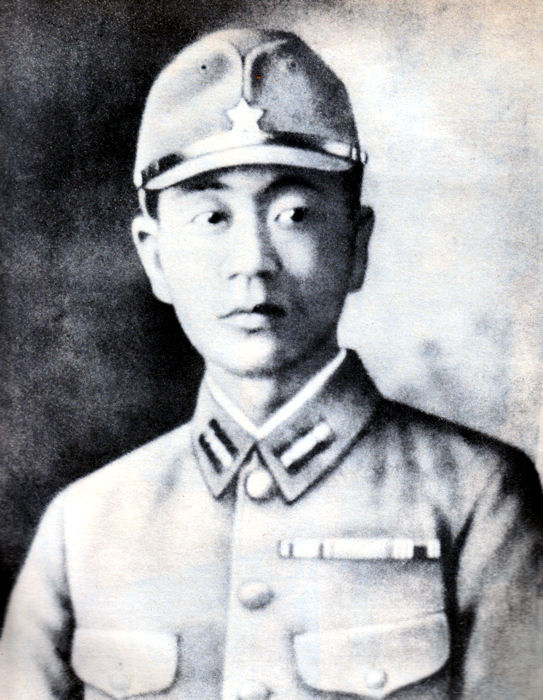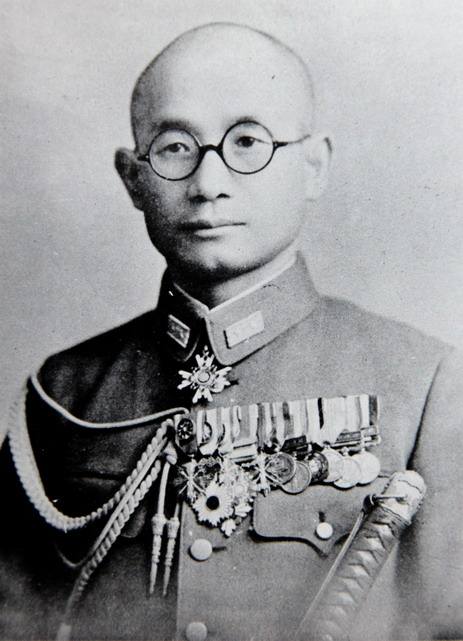Towards the Rising Sun:
Rebuilding the Japanese Nation in a Time of War and Peace
"I felt...
Rebuilding the Japanese Nation in a Time of War and Peace
"I felt...





You are approved to take this character and you can choose where he is in the Pacific or Mainland Japan currently.Since I've finally regained access to a PC, I'd like to ask to play a historical figure:

Masanobu Tsuji - Wikipedia
en.wikipedia.org
The only change that would have to be made is that he should be posted to some island instead of Burma.
Is Hainan Island an acceptable location?You are approved to take this character and you can choose where he is in the Pacific or Mainland Japan currently.
Hainan is still more Mainland Asia, how about the Philippines if you still want to be close to Mainland Asia?
Kalimantan in the occupied Dutch East Indies works.Anywhere where it makes sense for an army officer to be, rather than a naval one. How about Kalimantan then?
Uhhh I don't think you'd wanna be on that island, it's a dead end for any kind of fighting and unnecessary to the Allies war effort with the Philippines seized and the navy destroyed. Plus its one of the less restive islands of the Indonesian Archipelago with lots of rebels and old military units still running around.Anywhere where it makes sense for an army officer to be, rather than a naval one. How about Kalimantan then?
I'll heed your suggestion and change his location to Taiwan.
My character's end goal seems to be a US-free Asia. He apparently went missing while on a private mission to advise the VC despite being a complete reactionary himself.Mah end goal gotta be destroying communist china for the KMT ngl XD
There is currently a limitation on players selecting characters in the military deployed to Mainland Asia. You can play a civilian colonial bureaucrat or a businessman if you want to IC in Mainland Asia or you can pick a military character deployed someone in the Pacific or the Japanese Home Islands and await the possibility of deployment to China.If possible...
Name: Yasuji Okamura
Date of Birth: 15 May 1884
Age: 60
Place of Birth: Tokyo, Japan
Profession: Commander in Chief of the China Expeditionary Army
Rank (If playing a military character): Three Star General
Background:
Born in Tokyo in 1884, Okamura entered the 16th class of the Imperial Japanese Army Academy in 1899 and graduated in 1904. He was commissioned a second lieutenant in the IJA 1st Infantry Regiment. In 1907, he was promoted to lieutenant and was assigned to the Army Academy to assist with the training of cadets from China.
In 1910, Okamura entered the 25th class of the Army War College, and was promoted to captain soon after graduation in 1913. He was assigned to China in 1923, and served as a military advisor to Chinese warlord general Sun Chuanfang, in this capacity, he gathered many vital information and war maps, which later were used in the military operations of the Second Sino-Japanese War. He was promoted to colonel in July 1927 and returned to Japan to command the IJA 6th Infantry Regiment.
From August 1929, Okamura was appointed as Assistant Director of Human Resources Bureau in the Ministry of the Army. He was involved in the March incident, a failed coup d'etat attempt to establish a military dictatorship headed by General Kazushige Ugaki , but received no punishment.
From 1932 to 1933, Okamura was Deputy chief-of-staff of the Shanghai Expeditionary Army under the aegis of the Kwantung Army. He served as military attaché to Manchukuo from 1933 to 1934, and played a role in the negotiations for the Tanggu Truce between Japan and China.
Okamura was promoted to lieutenant general in 1936, and assigned command of the IJA 2nd Division.
In 1938, a year after the Marco Polo Bridge Incident, Okamura was assigned as the commander in chief of the Japanese Eleventh Army, which participated in numerous major engagements in the Second Sino-Japanese War, notably the Battles of Wuhan, Nanchang and Changsha.
In April 1940, Okamura was promoted to the rank of full general. In July 1941, he was appointed the commander-in-chief of the Northern China Area Army. In December 1941, Okamura received Imperial General Headquarters Order Number 575 authorizing the implementation of the Three Alls Policy in north China, aimed primarily at breaking the Chinese Red Army.
Since taking overall command of the China Expeditionary army, he and the other staff officers have executed a ruthless and devastating offensive to crush the Chinese Resistance, called Ichi-Go, while its aims are to link the southern and northern forces together were critical to the future of the Japanese units in southern china and the destruction of American airbases that threatened Japan. in Okamura's eyes it would be better if the goals were more northern focused, continuing the destruction of the Communist Party of China and its guerrilla's while keeping Manchuria pacified and producing war material for the defense of Japan in the wake of the Navy's failures. It is time to conserve and strike where Japan can best exert maximal power.